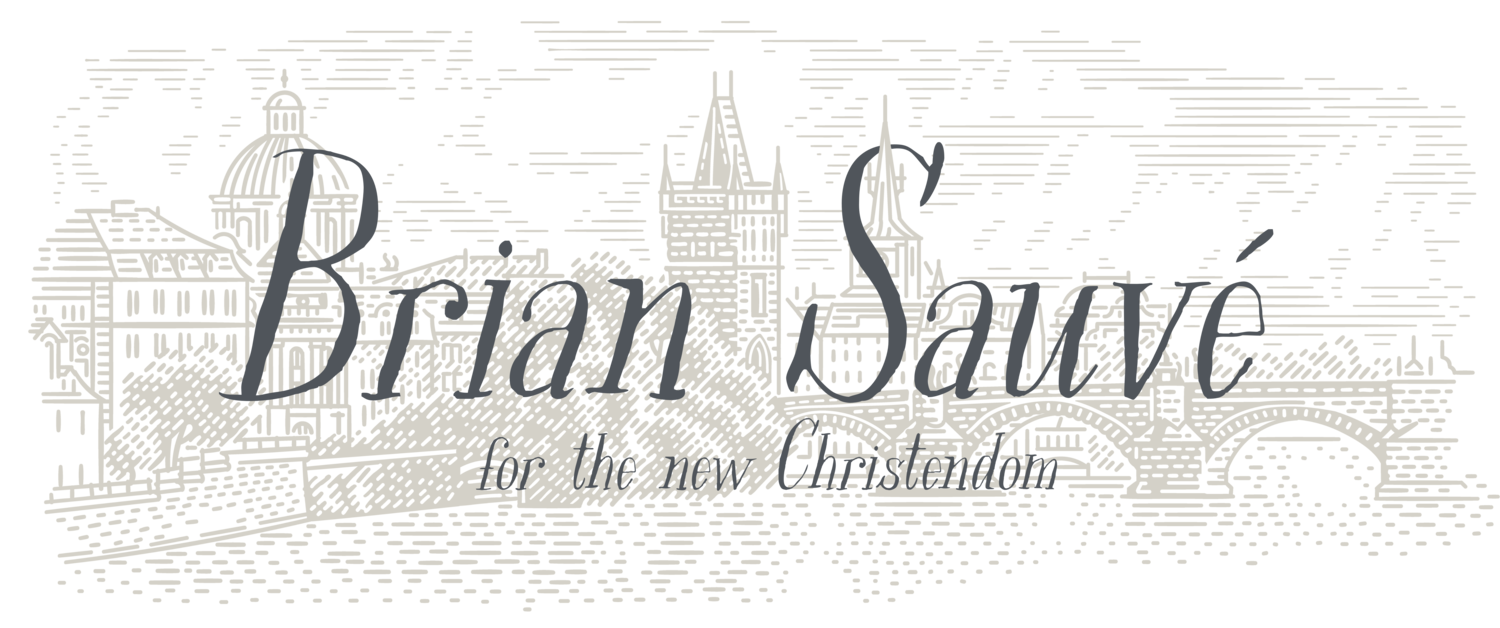Under a Festal Glow
It’s that time of year again! When articles lamenting the pagan origins of Christmas—held in queue since August the 17th—flood the feed of discernment bloggers nationwide. When the condemnations of stodgy pastors fly like brimstone from dusty pulpits onto the supposed Sodom of JC Penney’s one-day-only holiday sale. (“Do you see the materialist hordes, church? Walk not in their counsel!”). When Christmas trees and mistletoe find themselves unmasked as nothing more than the green groves and high places of our modern idolatries.
What is a simple Christian to do with such remonstrations?
My initial recommendation would be a stiff serving of eggnog, taken in the nearest easy chair, carefully imbibed through the whiskers of the most resplendent Santa beard you can find. That being accomplished, begin planning your Christmas menu, taking care to include a nice prime rib.
No, I’m not going to defend Christmas from her commonest impugnings at the keyboards of watch bloggers everywhere. I won’t say a word about Saturnalia or Yuletide, nor the winter solstice. Others have already done so admirably. I’d rather like to confront one of the urges of our flesh, an urge that lives upstream of our skepticism of Christmas feasting—namely, the ascetic impulse to feel most godly when we are most gloomy. No, God is not most glorified in us when we are most miserable in him.
The gnostic and the ascetic lie damnably. Theirs is a false gospel—all death and no resurrection, all bitter herbs and no roasted lamb. The true gospel is not so. Like every good story, it walks through the valley of the shadow of death, but it does so, to borrow Tolkien’s turn of phrase, eucatastrophically. From death, immortal life. From blood, indestructible redemption. From lamb, festal glory.
It is not the case that that the lighter you find this world, the weightier you will find her God. Not so—no more than watery porridge in the bowl makes for a merrier mother at the pot. The world is a thick, not a thin, place. In fact, the thicker we find the world, the weightier we will find the God behind it. When the true God, our God, brought the cosmos cantering out of the nothingness, he laughed and pronounced his Very Good! over it.
Yes, the pagans get this all wrong, stopping one leap short of glory and worshiping the creature rather then the ever-blessed Creator. But their problem is not too much of the material, but a fundament misunderstanding of it. Not so for his saints!
The more raucously that blood-washed multitude enjoys the chorus of smells and sights and tastes and scenes, the more they feel the Father’s joy. The saints become more, not less, material in their salvation—all the way up to the New Jerusalem and back down again. And they do so without becoming materialists, that is, without missing the point of all these material splendors. The Son became a man so men might become true men again.
Because they don’t worship the creature, the saints are free to exult in the bright brass section of frosted landscapes and the trumpeting of stars in the dark winter sky. They are free to revel without a hint of shame in crackling logs on the hearth—their warm glow reaching out like the throaty strains of Bach’s unaccompanied cello suites. For them, the worth of the Composer blazes out of his compositions, irrepressible.
Is not the earth the Lord's and the fullness thereof? Yes, and we his people, true claimants to her title in union to the Son to whom all is given. It may be that a dry crust with peace surpasses the sumptuous feast with strife. Better, yes—but best the feast and the peace. Best the wine and the song. Best the smile and the roast. Best the gift and its giver.
Before you accuse me of over-realizing my eschatology, let it be settled outright that no feast on this side of the New Jerusalem is without the specter of sin and all the company that comes with it. Yes, the ghost of Adam past rattles his chains over us, even over our festal gatherings. But feast on, we must; the Second Adam is victorious over the first. That wraith will soon be exorcised from our midst with thundering finality, creation liberated at the glorious appearing of the sons of God.
So sing your odes to the warm embrace of yellow butter and crunchy sugar and yeasted flour. Write your sonnets to chubby toddlers and their fingers, sticky with stolen dips into the sugar bowl. Do not dare not to give your standing ovations to the subtle curve and draw of your youthful bride at the crowded oven. Shout your praise. Drink your wine. Utter aloud your Amen! to his Very Good!
And one last thing: Don’t dismiss this as mere periphery; this, friends, is high theology. Our tables may just be a gospel issue, as the saying goes. So feast like Jude’s doxology and Matthew’s choir of angels over the shepherds in their fields. Feast on true bread in Bethlehem’s manger and crusty loaf at your own kitchen table. He is making us men again.
